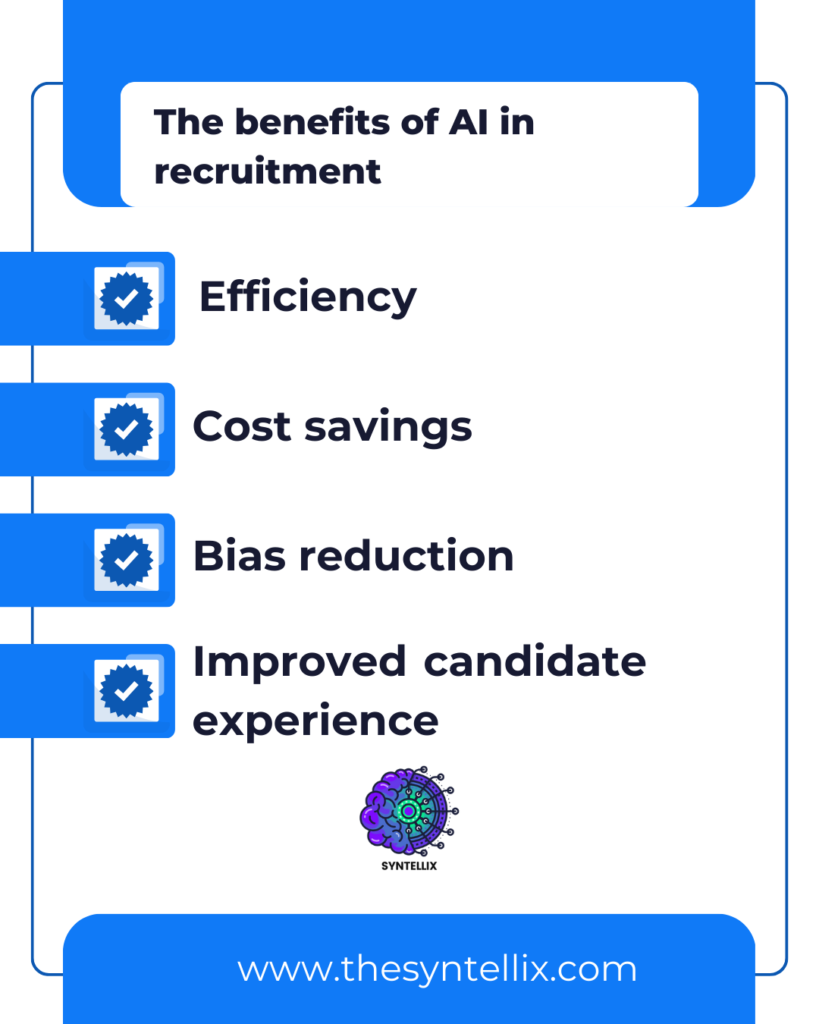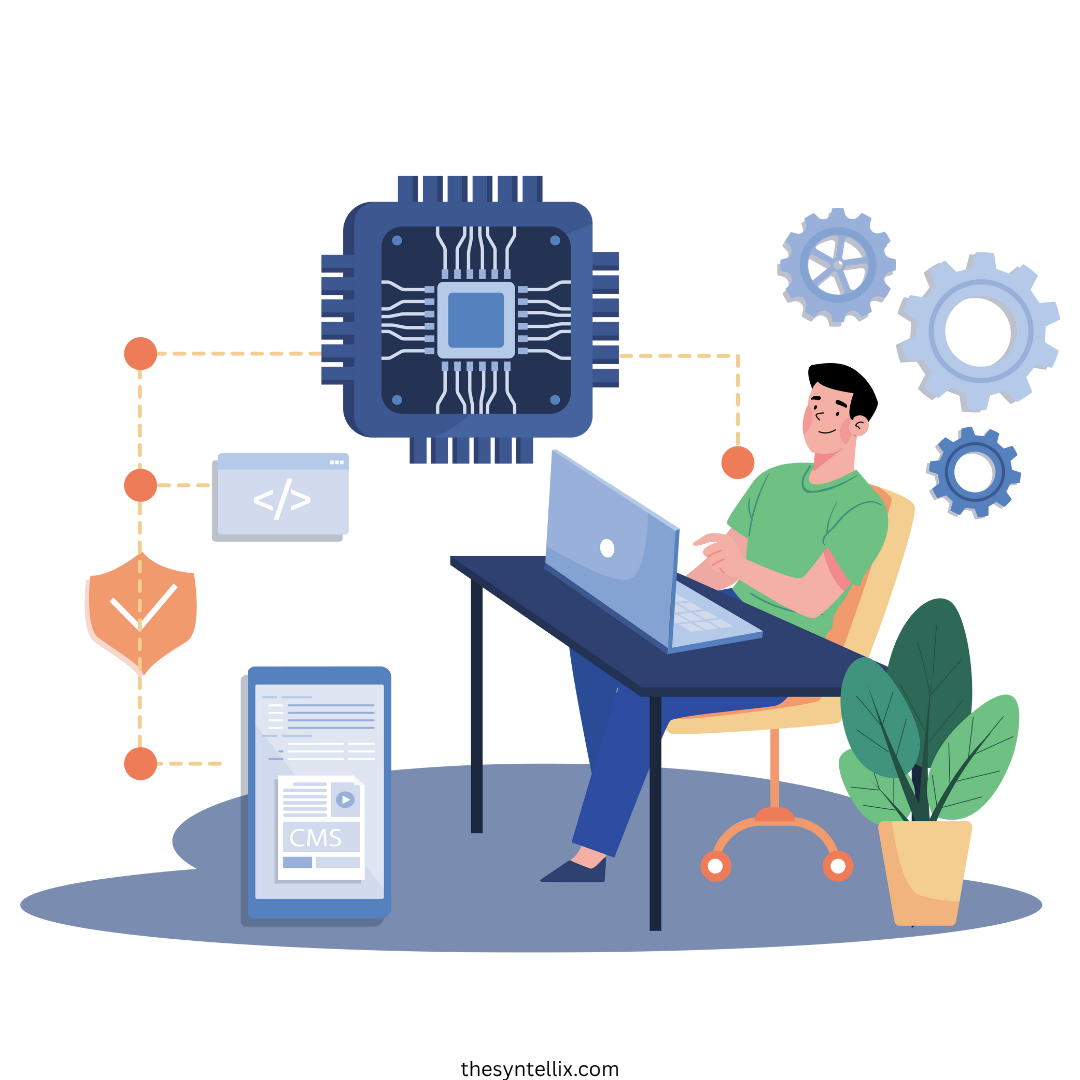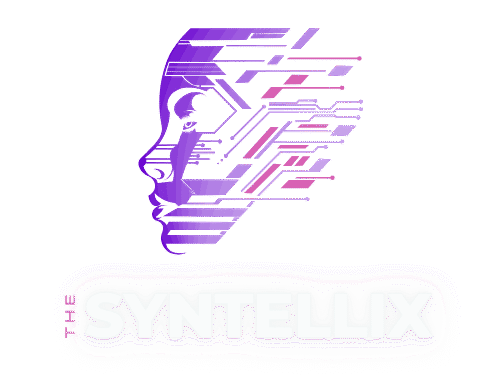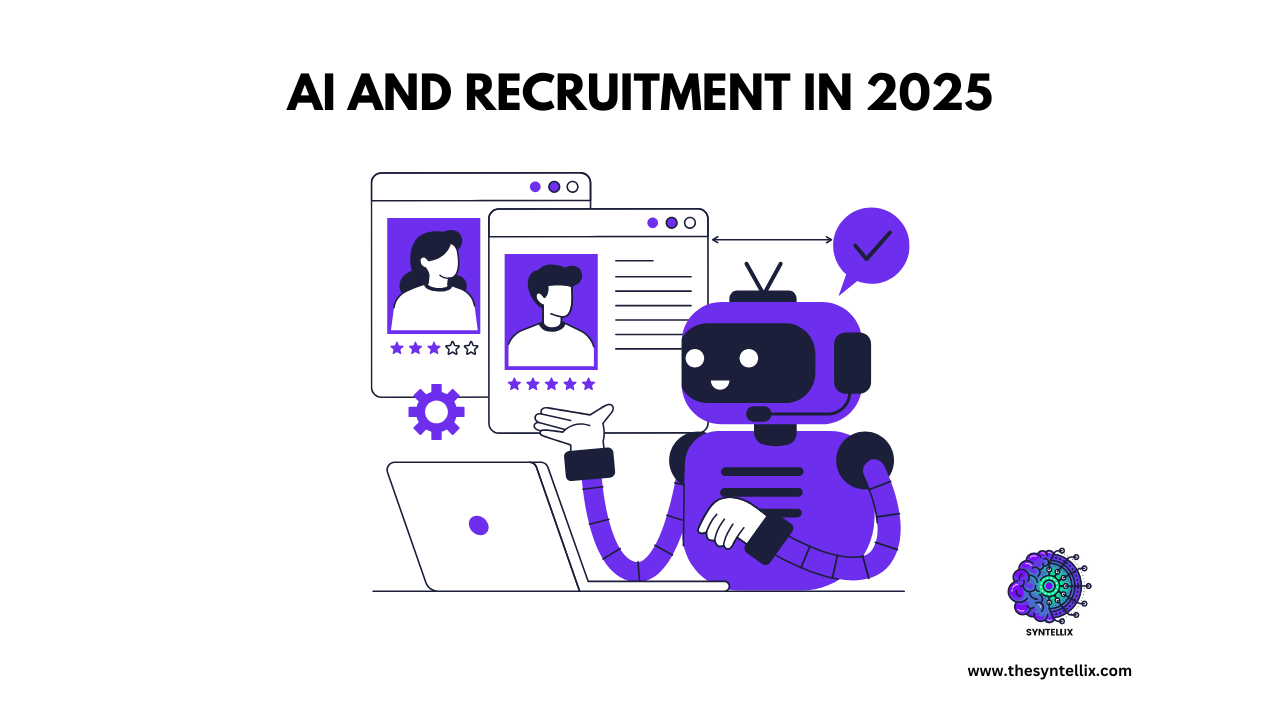Hiring the right people can make or break your business. But let’s be honest traditional recruitment is slow, stressful, and often biased.
Now imagine cutting hiring time in half, reviewing thousands of resumes in seconds, and finding the best candidates without missing a beat. Sounds like a dream? That’s exactly what AI in recruitment is making possible.
Across industries, companies are turning to AI to make hiring faster, smarter, and fairer. Let’s explore how this game-changing tech is reshaping the way we find talent.
How AI is transforming recruitment
AI is not just changing the process of recruitment it’s completely transforming it. From the first job ad to the final interview, artificial intelligence helps the recruiters to work faster, smarter, and more fairly.
1. Smarter Resume Screening
Gone are the days of sorting through hundreds of resumes by hand. AI-powered tools can now scan thousands of applications in seconds.
These systems look for keywords, qualifications, and patterns that matches the job description. They highlight the best candidates and reduce the chances of overlooking great talent. This saves time and helps HR teams focus on people, not paperwork.
2. Better Job Descriptions
Writing a clear, inclusive job description is hard but AI makes it easier. Tools like Textio help companies to write postings that attract a wider range of applicants.
These platforms suggest better language, remove bias, and make your job listings more appealing.
3. Fairer Candidate Selection
AI tools can also help to reduce unconscious bias. Some platforms hide names, genders, or other personal details during the screening process. Others analyze video interviews to assess communication skills and emotional cues without relying on appearance or background. When used correctly, this helps to build a more diverse and inclusive workforce.
4. Faster Hiring Decisions
AI does not just help at the start it also speeds up the decision-making process. Chatbots can schedule interviews, answer candidate questions, and keep applicants informed.
Some systems even rank candidates based on performance in assessments or interviews, helping teams choose the best fit more confidently.
5. Data-Driven Insights
AI also gives recruiters insights they never had before. It can track what’s working (or not) in your hiring process, suggest improvements, and even predict future hiring needs. This makes HR more strategic and less reactive.
6. Saves Time on Repetitive Tasks
Recruiters often spend hours scanning resumes, scheduling interviews, and following up with candidates. AI tools can handle these tasks in minutes.
For example, resume screening software uses AI to quickly sort through applications and highlight the most qualified candidates. This means your hiring team can focus on what really matters connecting with people and making the right hiring decisions.
In short, AI is making recruitment more efficient, more accurate, and more human-focused. Instead of replacing recruiters, it gives them better tools to find and hire the right people faster.

The challenges and risks of AI in recruitment
AI in recruitment can be powerful, but it not perfect. While it speeds up hiring process and reduces manual tasks, it also brings real challenges and risks that employers and HR teams need to watch closely.
1. Bias in the Algorithm
One of the biggest risks is bias. AI learns from historical data, and if that data includes biased hiring patterns (like favoring one gender, ethnicity, or age group), the AI can repeat or even amplify those mistakes.
In some cases, companies have had to shut down AI recruitment tools because they were unfairly filtering out qualified candidates.
2. Lack of Transparency
AI can feel like a black box. You may not always understand how or why it made a hiring decision. This lack of transparency can make it difficult to explain rejections to candidates or defend decisions in case of legal disputes.
3. Over-Reliance on Automation
Relying too much on AI can make the hiring process feel impersonal. Candidates may feel like they’re talking to robots instead of real people, which can hurt your employer brand. Plus, AI can miss important soft skills that a human recruiter might spot in a conversation or interview.
4. Privacy and Data Security
AI systems need to access the personal data—like resumes, social media profiles, or online test results—to function well. But collecting and storing that data comes with privacy risks. If not managed properly, it could lead to data breaches or violate regulations like GDPR.
5. High Cost and Maintenance
Not all companies have the budget or expertise to set up and maintain AI systems. It often requires regular updates, monitoring for fairness, and adjustments to stay aligned with business goals and ethical standards.
AI can definitely help recruiters to work smarter—but it’s not a “set it and forget it” tool. Human oversight, ethical design, and transparency are key to using AI in recruitment responsibly.
Ethical considerations in AI driven recruitment
As AI becomes more prevalent in recruitment, it’s essential to address the ethical implications. Here’s what companies need to consider:
1. Transparency
Candidates should know when and how AI is being used in the hiring process.
- Example: Clearly explain how AI tools are used in job postings or during interviews.
2. Data privacy
Ensure candidate data is stored securely and used ethically.
- Example: Comply with data protection regulations like GDPR to protect candidate privacy.
3. Fairness
Regularly audit AI systems to prevent bias and ensure fairness.
- Example: Test AI tools with diverse datasets to identify and address potential biases.
4. Regulation
Advocate for industry-wide guidelines to govern the use of AI in recruitment.
- Example: Support initiatives like the EU’s proposed AI Act, which includes provisions for ethical AI use.
Tips for job seekers and employers
Whether you’re a job seeker navigating AI-driven recruitment or an employer implementing AI tools, here are some tips to help you succeed:
For job seekers
- Optimize your resume: Use keywords from the job description to pass AI screening.
- Prepare for video interviews: Practice clear communication and positive body language.
- Research the company: Understand how they use AI in recruitment and tailor your application accordingly.
For employers
- Choose the right tools: Select right AI recruitment tools that prioritize fairness and transparency.
- Combine AI with human judgment: Use AI for initial screening but involve humans in final decisions.
- Train your team: Ensure recruiters understand how to use AI tools effectively and ethically.
Conclusion: The Future of AI and recruitment
As AI continues to shape the future of hiring, the real opportunity lies in how we choose to use it. When we combine AI’s speed with human empathy and judgment, we don’t just make faster decisions, we should make better ones.
Let’s build a hiring process that is not only efficient but also fair, inclusive, and thoughtful. Because in the end, the best teams are built with both smart technology and human insight working together.
What do you think about AI in recruitment? Have you experienced AI-driven hiring as a candidate or employer? Share your thoughts in the comments below—we’d love to hear from you!
For more information about AI ETHICS visit my website THE SYNTELLIX!
People also ask
How is AI used in hiring?
AI is used in hiring to automate and streamline various stages of the recruitment process. This includes resume screening, candidate ranking, chatbot-based interview scheduling, and even video interview analysis using natural language processing and facial recognition. It helps reduce manual workload and bias, though ethical concerns remain around fairness and transparency.
How can AI be used in employment?
AI can support employment by helping match job seekers with suitable roles, personalizing job recommendations, analyzing workforce trends, and enabling skills-based hiring. On the employer side, AI assists in talent acquisition, performance tracking, employee engagement analysis, and even predictive workforce planning.
Do hiring companies check for AI?
Yes, many companies now check if AI or automation tools were used to generate resumes or application content, especially with the rise of AI-written cover letters. Some applicant tracking systems (ATS) flag generic or overly optimized documents. In sensitive roles, companies may value authenticity and may test candidates more rigorously if AI-generated work is suspected.
Which AI tool is best for recruitment?
Popular AI recruitment tools include:
-
HireVue – AI-powered video interview analysis.
-
Pymetrics – Uses neuroscience-based games and AI to assess candidate fit.
-
Hiretual (HireEZ) – AI sourcing and talent intelligence platform.
-
XOR – AI chatbot for recruitment automation.
-
Zoho Recruit – Integrates AI for resume parsing and candidate ranking.
The “best” tool depends on the company’s size, hiring needs, and budget.

Stay ahead of the curve with the latest insights, tips, and trends in AI, technology, and innovation.

